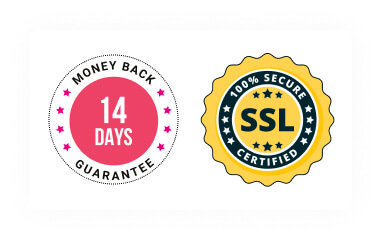Course Curriculum
| Induction form | |||
| Induction Form | 00:05:00 | ||
| Registration Entry Form | |||
| Registration Entry Form | 00:05:00 | ||
| Unit 1 - Structure and Overview of the Health and Social Care Sector | |||
| Self Assessment | |||
| SAU_1_K_618_4167_3_50_12 | 00:00:00 | ||
| Learners Manual | |||
| Unit Info | 00:00:00 | ||
| Suggested Resources | 00:00:00 | ||
| LO1 Understand the structure of health and social care provision | 00:00:00 | ||
| LO2 Understand health and social care provision for different ages and stages of life | 00:00:00 | ||
| LO3 Understand the different areas of specialism within health and social care | 00:00:00 | ||
| LO4 Understand issues in health and social care | 00:00:00 | ||
| Indicative Content | 00:00:00 | ||
| Support Materials | |||
| A quick guide to govt healthy eating update | 00:00:00 | ||
| Current issues in the provision of health and social care | 00:00:00 | ||
| Equality and Diversity | 00:00:00 | ||
| Health and Care Structures | 00:00:00 | ||
| Health and social care needs during a lifetime | 00:00:00 | ||
| Health issues in UK | 00:00:00 | ||
| Measuring Health Inequalities | 00:00:00 | ||
| Roles | 00:00:00 | ||
| Services | 00:00:00 | ||
| UK Health Sector | 00:00:00 | ||
| Assignment | |||
| Assignment: Unit 1 – Structure and Overview of the Health and Social Care Sector (K_618_4167) | 00:00:00 | ||
| Unit 2: Principles, Values and Regulation in the Health and Social Care Sector | |||
| Self Assessment | |||
| SAU_2_M_618_4168_3_60_10 | 00:00:00 | ||
| Learners Manual | |||
| Unit Info | 00:00:00 | ||
| Suggested Resources | 00:00:00 | ||
| LO1 Understand current policy on health and social care | 00:00:00 | ||
| LO2 Understand legislation and guidance which impact on the provision and practice of health and social care | 00:00:00 | ||
| LO3 Understand the principles and values that underpin the provision of care | 00:00:00 | ||
| Indicative Content | 00:00:00 | ||
| Support Materials | |||
| Consequences of Health & Safety Non-compliance | 00:00:00 | ||
| Conventions, Legislation and Regulations | 00:00:00 | ||
| Dignity and Human Rights | 00:00:00 | ||
| Health and Social Care Funding | 00:00:00 | ||
| Health and Social Care Sector and Economy | 00:00:00 | ||
| Healthcare Record Keeping Standards and Guidance | 00:00:00 | ||
| Immigration policy for health and social care | 00:00:00 | ||
| Impacts of Policy | 00:00:00 | ||
| Introducing-the-6cs | 00:00:00 | ||
| Policies on Health and Social Care | 00:00:00 | ||
| Principles of Health and Social Care | 00:00:00 | ||
| Promoting the Principles | 00:00:00 | ||
| Staff Regulation | 00:00:00 | ||
| Assignment | |||
| Assignment: Unit 2 – Principles, Values and Regulation in the Health and Social Care Sector (M_618_4168) | 00:00:00 | ||
| Unit 3 - Human Growth and Development | |||
| Self Assessment | |||
| SAU_3_T_618_4169_3_28_5 | 00:00:00 | ||
| Learners Manual | |||
| Unit Info | 00:00:00 | ||
| Suggested Resources | 00:00:00 | ||
| Lo1 Know Stages of Growth and Development Throughout the Human Lifespan | 00:00:00 | ||
| Lo2 Understand Potential Effects of Life Factors and Events on Growth and Development | 00:00:00 | ||
| Lo3 Understand Physical and Psychological Changes of Ageing | 00:00:00 | ||
| Lo4 Understand the Effect of Transitions and Significant Life Events | 00:00:00 | ||
| Indicative Content | 00:00:00 | ||
| Support Materials | |||
| Addressing Transition Phenomena in Healthcare Settings | 00:00:00 | ||
| Changes from Birth to Old Age | 00:00:00 | ||
| Changes That Occur in the Course of an Individual’s Life as a Result of Significant Life Events or Transitions | 00:00:00 | ||
| Factors Effecting Growth and Development | 00:00:00 | ||
| How the Challenges of Aging Can Affect Self-Esteem | 00:00:00 | ||
| Introducing-the-6cs | 00:00:00 | ||
| Illness, Focus, Achievements | 00:00:00 | ||
| Norms and Milestones | 00:00:00 | ||
| Physical and Psychological Changes Linked to Ageing | 00:00:00 | ||
| Potential Effects of Life Factors and Events on the Growth and Development of Individual | 00:00:00 | ||
| Safeguarding | 00:00:00 | ||
| Supporting Core Practice in Health and Social Care | 00:00:00 | ||
| The 6Cs | 00:00:00 | ||
| The Human Life Cycle | 00:00:00 | ||
| Transitions and Significant Life Eevents Across the Life Stages | 00:00:00 | ||
| Transitions Why It’s So Important for Social Workers to Be on Time | 00:00:00 | ||
| Assignment | |||
| Assignment: Unit 3 – Human Growth and Development (T_618_4169) | 00:00:00 | ||
| Unit 4 - Working in Health and Social Care | |||
| Self Assessment | |||
| SAU_4_J_615_2004_3_90_15 | 00:00:00 | ||
| Learners Manual | |||
| Unit Info | 00:00:00 | ||
| Suggested Resources | 00:00:00 | ||
| Lo1 Understand Person Centred Working | 00:00:00 | ||
| Lo2 Understand the Use of Effective Communication in Health and Social Care Provision | 00:00:00 | ||
| Lo3 Know How to Reduce the Spread of Infection | 00:00:00 | ||
| Lo4 Understand Working Relationships in Health and Social Care | 00:00:00 | ||
| Lo5 Understand the Principles of Care Planning | 00:00:00 | ||
| Lo6 understand the Safe Administration of Medication | 00:00:00 | ||
| Indicative Content | 00:00:00 | ||
| Support Materials | |||
| Actions and Support | 00:00:00 | ||
| Administration of Medicines | 00:00:00 | ||
| Adverse Reaction of Drugs | 00:00:00 | ||
| An Introduction to Communication | 00:00:00 | ||
| Advocacy in Social Care | 00:00:00 | ||
| Barriers to Communication | 00:00:00 | ||
| Care Plan | 00:00:00 | ||
| Causes and Spread of Infection | 00:00:00 | ||
| Clinical-Waste-Disposal-Procedure | 00:00:00 | ||
| Communication and Language Needs and Preferences | 00:00:00 | ||
| Confidentiality | 00:00:00 | ||
| Decision Making in Personalised Care | 00:00:00 | ||
| Diseases and Infections | 00:00:00 | ||
| Electronic Storage Systems | 00:00:00 | ||
| Explain Why It Is Important to Have Secure Systems for Recording and Storing Information in a Care Setting | 00:00:00 | ||
| Good Practices for Infection Prevention and Control | 00:00:00 | ||
| Handling Information | 00:00:00 | ||
| Individual Care Planning | 00:00:00 | ||
| Infection Control and Prevention Standard Precautions | 00:00:00 | ||
| Infection Control and Prevention | 00:00:00 | ||
| Infection Prevention and Control Assurance – SOP 4 – Reporting incidents of infection to PHE or the Local Authority | 00:00:00 | ||
| Infection Prevention and Control Assurance – SOP 7 – Decontamination | 00:00:00 | ||
| Infection | 00:00:00 | ||
| Introducing-the-6cs | 00:00:00 | ||
| Key Factors for Infection Occurence | 00:00:00 | ||
| Laws, Regulations, and Infection Prevention | 00:00:00 | ||
| Localised vs Systemic Infections | 00:00:00 | ||
| Maintaining Records | 00:00:00 | ||
| Manage Common Drug Side Effects | 00:00:00 | ||
| Medication Risk Assesmsent Guidance | 00:00:00 | ||
| Manual Storage System | 00:00:00 | ||
| Meantal Health and Capacity | 00:00:00 | ||
| Monitor the Condition of Individuals | 00:00:00 | ||
| Medications | 00:00:00 | ||
| Monitoring of Medication | 00:00:00 | ||
| Necessity of Communication in Health and Social Care | 00:00:00 | ||
| OTC Drugs | 00:00:00 | ||
| Partnership Working in Health and Social Care | 00:00:00 | ||
| Person Centred Approach Stated in the Adult Care Act 2014 | 00:00:00 | ||
| Person Centred Approach | 00:00:00 | ||
| Person-centred Care | 00:00:00 | ||
| Person-Centred Values | 00:00:00 | ||
| Rights Of Medication Administration | 00:00:00 | ||
| Positive Risk Taking | 00:00:00 | ||
| Policies, Procedures, and Legislation | 00:00:00 | ||
| Priciples Related to Specific Situations | 00:00:00 | ||
| Promoting Rights | 00:00:00 | ||
| Reduce the Abuse | 00:00:00 | ||
| Roles | 00:00:00 | ||
| Safe Medication | 00:00:00 | ||
| Safeguarding | 00:00:00 | ||
| Secure Handling of Information in Care Settings | 00:00:00 | ||
| Services | 00:00:00 | ||
| Side Effects of Medicine | 00:00:00 | ||
| Spread of Infection | 00:00:00 | ||
| Storage, Distribution and Disposal | 00:00:00 | ||
| Strategies for Overcoming Communication Barriers | 00:00:00 | ||
| Support and Response | 00:00:00 | ||
| Types of Communication | 00:00:00 | ||
| Understand Person-centred Working | 00:00:00 | ||
| Understand Relationships | 00:00:00 | ||
| Understanding Person Centred Working | 00:00:00 | ||
| What is the Person Centred Approach | 00:00:00 | ||
| Working Relationships in Health and Social Care | 00:00:00 | ||
| Assignment | |||
| Assignment: Unit 4 – Working in Health and Social Care (K_618_4170) | 00:00:00 | ||
| Unit 5 - Research in Health and Social Care | |||
| Self Assessment | |||
| SAU_5_M_618_4171_3_55_10 | 00:00:00 | ||
| Learners Manual | |||
| Unit Info | 00:00:00 | ||
| Suggested Resources | 00:00:00 | ||
| Lo1 Understand the Role of Research and Different Approaches in Health and Social Care Practice | 00:00:00 | ||
| Lo2 Know How to Identify and Justify a Topic for Research Within Services for Health and Social Care | 00:00:00 | ||
| Lo3 Be Able to Complete a Research Project in Health and Social Care | 00:00:00 | ||
| Indicative Content | 00:00:00 | ||
| Support Materials | |||
| Research and Evidence-Based Practice | 00:00:00 | ||
| Complete a Research Project | 00:00:00 | ||
| Identify and Justify a Topic for Research | 00:00:00 | ||
| Research | 00:00:00 | ||
| Assignment | |||
| Assignment: Research in Health and Social Care | 00:00:00 | ||
| Unit 6: Personal and Professional Development in the Health and Social Care Sector | |||
| Self Assessment | |||
| SAU_6_T_618_4172_3_30_8 | 00:00:00 | ||
| Learners Manual | |||
| Unit Info | 00:00:00 | ||
| Suggested Resources | 00:00:00 | ||
| Lo1 Understand Career and Progression Opportunities in the Health and Social Care Sector | 00:00:00 | ||
| Lo2 Understand Professional Development in Health and Social Care | 00:00:00 | ||
| Lo3 Understand How Reflective Practice Supports Personal and Professional Development | 00:00:00 | ||
| Lo4 Understand How to Plan Own Personal and Professional Development in Health and Social Care | 00:00:00 | ||
| Indicative Content | 00:00:00 | ||
| Support Materials | |||
| 1.1 – Working in Social Care | 00:00:00 | ||
| 1.2 – Career Progression Options in Health and Social Care | 00:00:00 | ||
| 1.3 – Personal Skills What Do Health Care Professionals Need | 00:00:00 | ||
| Role of Health and Social Care Workers in Detail | 00:00:00 | ||
| Trainning | 00:00:00 | ||
| What Is Health and Social Care | 00:00:00 | ||
| 2.1 – Standards and Professional Development | 00:00:00 | ||
| 2.2 – Continuing Professional Development Within Health and Social Care | 00:00:00 | ||
| 2.3 – the Importance of Continuing Professional Development | 00:00:00 | ||
| Explain What Is Meant by Reflective Practice | 00:00:00 | ||
| What is Reflective Practice | 00:00:00 | ||
| Research and Evidence-Based Practice | 00:00:00 | ||
| Explain Theoretical Models of Reflective Practice | 00:00:00 | ||
| Reflective Model According to Kolb+graham Gibbs – Reflective Cycle | 00:00:00 | ||
| Describe How Own Values | 00:00:00 | ||
| The Reflective Journal Thought Process | 00:00:00 | ||
| Reflect on Own Learning | 00:00:00 | ||
| Developing a Personal Development Plan (Pdp) | 00:00:00 | ||
| Personal Development Plan | 00:00:00 | ||
| Personal Development | 00:00:00 | ||
| SMART Goals | 00:00:00 | ||
| Assignment | |||
| Assignment: Personal and Professional Development in the Health and Social Care Sector | 00:00:00 | ||
| Assignment Submission Guideline | |||
| Assignment Submission Guideline | 00:00:00 | ||
| Submit Your Assignment - ATHE Level 3 Diploma in Health and Social Care | |||
| Submit Your Assignment – ATHE Level 3 Diploma in Health and Social Care | 00:00:00 | ||
| Resubmit Your Assignments | |||
| Resubmit Your Assignments – ATHE Level 3 Diploma in Health and Social Care (2020) | 00:00:00 | ||

0
0
Your Cart
Your cart is emptyBrowse Courses
Upgrade to get UNLIMITED ACCESS to ALL COURSES for only £49/year
Claim Offer & UpgradeMembership renews after 12 months. You can cancel anytime from your account.
Other Students Also Buy













 1 Year Access
1 Year Access 
 75 Students
75 Students  360 Hours
360 Hours 



